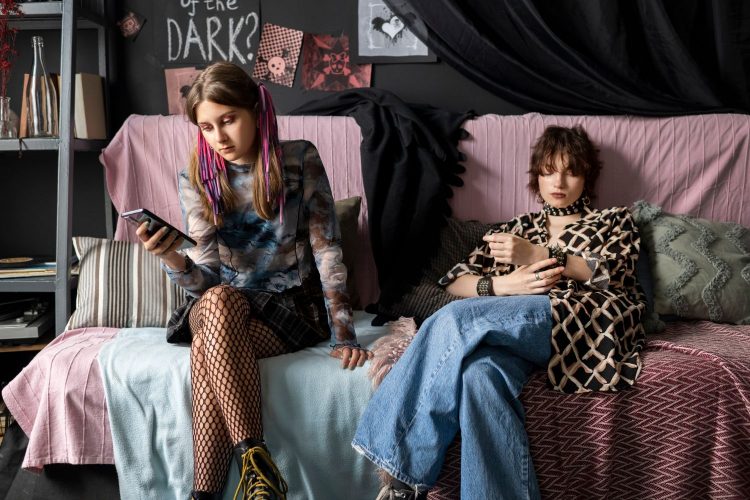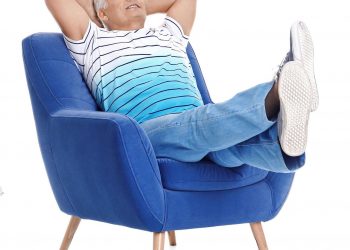Fashion is more than looking good in the latest trends; it is a form of self-expression to many. Our manner of dressing says a lot about who we are and how we want people to perceive us. Our fashion sense reflects our belief systems, personality, and lifestyle choices.
People are social beings; they want to fit in and be a part of a group. Our clothing choices determine whether we make or break a job interview, our ability to make friends, and how we develop romantic relationships. External factors like social media, influencers, etc., also affect our style choices.
The following article discusses how the psychology of fashion and our style choices impacts our lifestyle.
How Does Fashion Choices Impact Our Lifestyle?
We’ve all grown up hearing the famous saying, “Clothes maketh a Man.” Fashion has a much more profound impact on our lives than we may realize. The psychology of fashion is a fascinating topic that explores how our style choices can influence our thoughts, emotions, behaviors, and overall lifestyle.
Let us delve into the psychology of fashion and see how your style choices impact your lifestyle.
The Relationship Between Fashion And Self-Identity
Style gurus always associate fashion with self-identity. It’s how we distinguish ourselves from others and create a sense of belonging. Our clothing choices often reflect our values, interests, and personality traits. For example, someone who is into punk rock or the Goth style of dressing may wear black leather jackets, ripped jeans, and studded belts.
Alternatively, someone into vintage clothing may opt for long, flowy lace dresses and floral patterns. These are typical of the romantic era.
Researchers at North Western University found that clothing significantly impacts our psychological state. The study the researchers conducted found that people are more trusting of a person wearing a white lab coat, thought to be a doctor’s uniform, than a person dressed in a painter’s garb. The study suggests our clothing does influence our behavior and mental processes.
Self-Expression Through Fashion
Self-expression is one of the most obvious ways that fashion impacts our lives. It can affect how we feel about ourselves and how others perceive us.
For instance, we wear bright and bold colors to make us feel confident and cheerful, while wearing dark and subdued colors can create a more severe and formal impression. Similarly, wearing fashionable clothes makes us feel fashionable, and when we wear comfortable and casual clothes, we create a more relaxed and laid-back impression.
Young people use fashion and style choices through their psychosocial development. It is part of their self-development and a way of finding their place in the world. Many parents struggle with allowing their children to select their clothing.
The Influence Of Social Norms
While we see fashion as a way to stand out and express ourselves, social norms and cultural values also highly influence it. Our clothing choices shape our desire to fit in with a specific group or to conform to societal expectations.
For instance, we perceive a person wearing a formal suit and tie as a symbol of professionalism and respectability in many workplaces, while wearing jeans and a t-shirt is more acceptable in a casual setting.
Similarly, certain clothing types are more appropriate or expected based on gender, age, or cultural background.
Conforming to specific dress codes or cultural traditions helps us to feel a sense of belonging and acceptance within our community. Still, it limits our ability to express ourselves and explore new styles.
The Impact Of Fashion Trends
Fashion constantly evolves and changes, with new seasonal trends emerging. While it’s tempting to follow the latest trends and stay up-to-date with the latest styles, it’s important to remember that fashion trends also impact our lifestyles positively and negatively.
On the one hand, following the latest fashion trends is a fun and exciting way to explore new styles and express ourselves creatively. It can also help us stay connected with our peers and keep up with the latest cultural and social movements.
However, fashion trends also create a sense of pressure to conform and keep up with unrealistic beauty standards, which can lead to negative body image, low self-esteem, and even mental health issues.
It is, therefore, essential to approach fashion trends with a critical eye and ensure we select clothing that makes us feel comfortable and confident instead of simply following the latest fad.
The Intersection Of Fashion And Sustainability
The psychology of fashion also intersects with issues of sustainability and ethical consumption. The fashion industry is one of the pollutants and contributors to global warming; therefore, we must consider how our fashion choices impact the environment and society.
Sustainable and ethical fashion choices positively impact our lifestyle by promoting a more conscious and mindful approach to consumption. It also helps us feel good about our choices and contribute to a more sustainable and just world.
Conclusion
The psychology of fashion explores the impact of our style choices on our thoughts, emotions, behaviors, and overall lifestyle. Whether we use fashion to express ourselves, conform to social norms, follow trends, or promote sustainability, it’s important to remember that our clothing choices have a powerful impact on our identity, behavior, and overall lifestyle.
By choosing clothing that reflects our personality, and makes us feel comfortable and confident, we can use fashion as a tool for positive change in our lives and the world.







